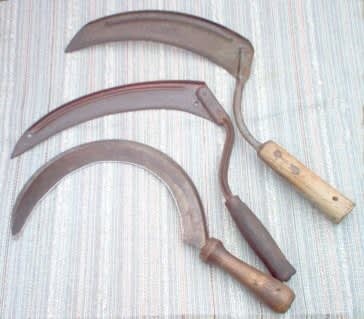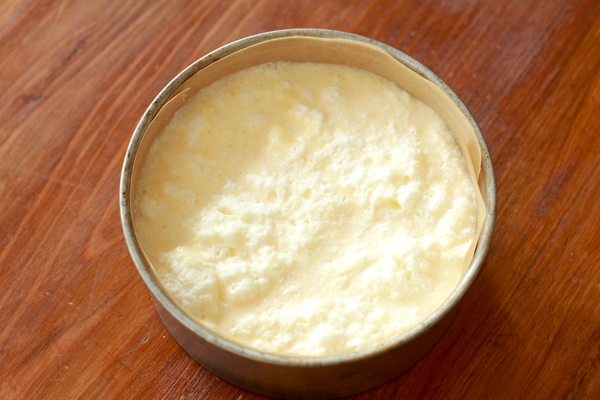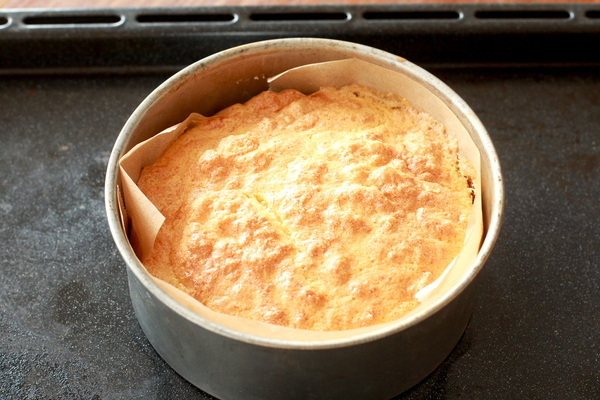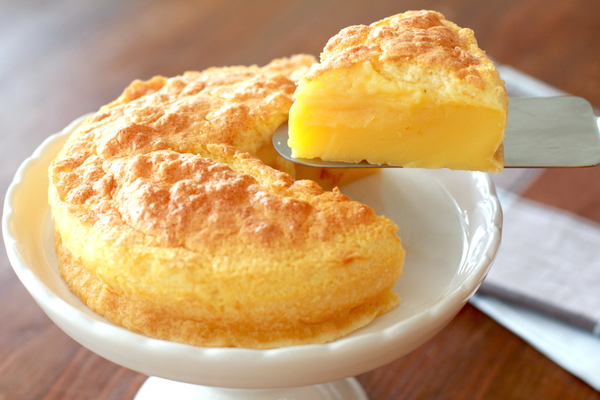2016-11-10 05:58:53 lifehacker
Applying Lessons from Sun Tzu and The Art of War to Everyday Life
James Clear
10/10/16 10:00amFiled to: SELF IMPROVEMENT
81.8K
21
13

Sun Tzu was a legendary military strategist in ancient China and he is the author of the famous book, The Art of War. He was a master of “soft power” and the father of “agile warfare.” Whenever possible, he preferred to win without fighting or, at the very least, to win the easiest battles first.
This post originally appeared on JamesClear.com.
He wrote, “In war, the victorious strategist only seeks battle after the victory has been won.” He advised his troops to “make your way by unexpected routes and attack unguarded spots.” And he further stated, “Military tactics are like water. For water, in its natural course, runs away from high places and hastens downwards. So, in war, the way is to avoid what is strong and strike at what is weak.”
The teachings of Sun Tzu extend far beyond the field of battle because they are focused on finding the easiest way to achieve a specific goal. His approaches can be applied to everything from business growth and goal setting to weight loss and habit formation.
Let’s talk about how to apply military strategy to our daily lives.
The Battle for Better Habits
Too often, we try to build new habits, achieve big goals, and otherwise “win at life” through sheer force. We fight our battles directly and attack the enemy—in this case, our bad habits—at the point where they are strongest.
For example:
We try to follow a strict diet while we are out to dinner with friends.
We try to write a book in a noisy environment.
We try to eat healthy in a house filled with sweets and sugar.
We try to do our homework with the television on.
We try to concentrate while using a smartphone filled with social media apps, games, and other distractions.
And when we fall off course and fail to achieve our goals, we blame ourselves for “not wanting it badly enough” and for not having enough willpower. In many cases, however, failure is not a result of poor willpower, but a result of poor strategy.
Good military leaders start by winning easy battles and improving their position. They wait until the opposition is weakened and morale is low before they take on their foe directly. Why start a war by fighting battles in areas that are well-defended? Why start new habits in an environment that makes progress difficult?
Sun Tzu would never lead his army into a battle where the terrain was not to his advantage. He would not begin by attacking the point where the enemy is strongest. Similarly, we should make easy improvements to our habits first, build our strength, and establish a better position from which to attack the most difficult changes.
Sun Tzu, Master of Habits
Let’s adapt Sun Tzu’s teachings to building better habits. Here are a few examples that take his thoughts on war and apply them to daily life.
Example 1:
Sun Tzu: “You can be sure in succeeding in your attacks if you only attack places which are undefended.”
Adapted: “You can be sure in succeeding in your habits if you only build habits which are easy to maintain.”
Example 2:
Sun Tzu: “He will win who knows when to fight and when not to fight.”
Adapted: “He will improve his behavior who knows which habits to start with and which ones to leave for later.”
Example 3:
Sun Tzu: “A clever general, therefore, avoids an army when its spirit is keen, but attacks it when it is sluggish and inclined to return.”
Adapted: “A clever person, therefore, avoids the areas where bad habits are strongest, but attacks them where they are weak and easy to change.”
Fight Battles You Are Destined to Win
Becoming better is not simply a matter of willpower or work ethic. It’s also a matter of strategy. What people assume is a lack of willpower or an unwillingness to change is often a consequence of trying to build good habits in bad environments.
If you are trying to read more books, don’t do it in a room filled with video games, Netflix, and a television. Move to a less distracting environment.
If you’re very overweight, don’t try to follow a workout program for college athletes. You can get there eventually, but that’s not a battle you need to fight right now. Start with a manageable change.
If you’re surrounded by people who tear down your goals, then work on your projects in a different location or reach out to like-minded people.
If you’re trying to stick to a writing habit when your kids are home from school and your house is in chaos, then work on it at a different time. Switch to a time of less resistance.
Build your habits where it is easy to do so. Re-define the situation. Create a game where the odds are stacked in your favor.
It sounds simple, but how often do you find yourself fighting difficult battles and ignoring easy ones? There is plenty of time to fight the difficult battles. Win the easy battles first.
The smartest path is to improvement is the one of least resistance. Fight battles you are destined to win.
How to Use Military Strategy to Build Better Habits | James Clear
James Clear writes at JamesClear.com, where he shares self-improvement tips based on proven scientific research. You can read his best articles or join his free newsletter to learn how to build habits that stick.
2016-11-10 05:58:53 lifehacker
itou - こころ,キーパーソン,メンタル,モチベーション,人生,仕事術,働き方,時間管理,生活,生産性向上 今日, 09:00 pm
「孫子の兵法」を日常生活に活用する方法
「孫子の兵法」を日常生活に活用する方法
リスト
孫子は古代中国における伝説的な軍略家で、有名な兵法書『孫子』の著者でもあります。また、孫子は「ソフトパワー」のマスターであり、「機動戦」の父でもあります。孫子は、できるかぎり戦わず勝つこと、また、戦うなら最も楽に勝つことを良しとしました。
孫子は「戦においては、勝つ将軍はまず勝利を得て、それから戦を求める」と書いています。また、自軍の兵士に、「予期せぬルートを行軍し、敵の無防備なるところを攻めよ」と助言しています。さらに、「兵法とは水のようなものである。水は、自然の法則に従い、高いところを避け、低いところへ流れてゆく。戦においても、敵の強いところを避け、弱いところを攻めるようにする」と説いています。
孫子の教えは、具体的な目標を達成するための最も楽なやり方にフォーカスしていて、それは戦場をはるかに超えて生かすことができます。事業の拡大から、ダイエット、習慣づくりに至るまで、孫子のアプローチはさまざまな場面に活用することができます。
そこで、私たちの日常生活に孫子の兵法を活用する方法を解説します。
良い習慣をつくるという戦い
私たちは多くの場合、新しい習慣をつくる、大きな目標を達成する、ひいては「人生に勝つ」ことに力づくで取り組もうとします。悪い習慣、すなわち「敵」に真正面からぶつかって、敵の最も強い場所を攻撃しようとするのです。たとえば、次のようなことをしたことはありませんか。
友人たちと頻繁に外食に出かけながら、厳格な食事制限を守ろうとする。
騒がしい環境で原稿を書こうとする。
家にお菓子やスイーツを大量に置きながら、健康的な食生活をしようとする。
テレビをつけながら宿題に取り組む。
ソーシャルメディアのアプリやゲームなど、気が散るものがたくさんインストールされたスマホを手に持ちながら、何かに集中しようとする。
そして、失敗したり、目標が達成できないと、「気持ちが足りなかった」とか意志が弱すぎたといって自分を責めるのです。しかし、多くの場合、失敗した原因は意志の弱さではなく、戦略のまずさです。
優れた指揮官は楽な戦闘に勝つことからはじめ、戦況を少しずつ有利なものにしていきます。敵軍が弱体化し、士気が低下するのを待って攻撃を仕掛けます。わざわざ敵が防御を固めている場所を攻めることから戦をはじめる理由があるでしょうか? 同じく、わざわざ困難な環境のなかで新しい習慣づくりをはじめる理由があるでしょうか?
孫子は、地形的に不利な状況で、自軍に攻撃を命じることは決してありませんでした。敵の一番強い地点を攻めることから戦闘をはじめることもありませんでした。同じように、私たちもやりやすいところから習慣を改善し、強みを育て、そこを拠点に、有利な陣形を整えながら、最難関の場所へと歩を進めるべきなのです。
この美女たちが集められた、意外な理由 この美女たちが集められた、意外な理由 [ lifehacker ]
孫子に学ぶ、習慣化のマスター
孫子の教えを習慣づくりに適用してみましょう。孫子の兵法を日常生活に応用した事例が以下の3つです。
孫子の兵法:防御のない場所だけを攻めれば、攻撃はまちがいなく成功する。
日常生活への適用:続けるのが簡単な習慣だけに取り組めば、習慣づくりはまちがいなく成功する。
孫子の兵法:戦うべきときと、戦うべきではないときを知る者は勝つ。
日常生活への適用:取り組むべき習慣と、今は取り組むべきでない習慣を知る者は、良い習慣をつくる。
孫子の兵法:賢い将軍は,敵軍の士気が高いときは攻撃を避け,士気が低下し,故郷を思いはじめたころに、攻撃を仕掛ける。
日常生活への適用:賢い人間は、悪い習慣が最も強く根付いている部分は避け、弱く、変えやすい習慣に攻撃を仕掛ける。
勝てる戦いをする
生活の改善には、意志力や労働倫理だけが重要なのではありません。戦略も重要です。意志力の欠如や変化への抵抗だと言われていることの多くが、不利な状況で良い習慣をつくろうとしている結果にすぎません。
本をたくさん読みたいなら、ビデオゲームやテレビがある場所で読もうとしないことです。邪魔が入らない環境に移動してください。
体に肉が付きすぎているなら、アスリート用のワークアウトプログラムにいきなり取り組んだりはしないことです。最終的にそこに到達するのはOKですが、最初から挑むべき戦いではありません。手に追えることからはじめてください。
あなたの目標を邪魔する人たちに囲まれているなら、場所を移すか、同じ志を持つ仲間を探しましょう。
書く習慣をつくりたいなら、子どもたちが家にいて、家がカオスになる時間帯ではなく、もっと集中しやすい時間にトライしてください。抵抗が少ない時間を選んでください。
取り組みやすい環境で習慣づくりをしてください。環境を再定義してください。 有利な場所で戦いをしてください。
簡単そうに聞こえますが、よく自分を振り返ってみてください。わざわざ困難な状況で戦おうとはしていませんか? 簡単な戦いを見逃してはいませんか? そうではなく、まずは勝つ見込みの高い戦いをすることです。
習慣を改善する最も賢いやり方は、抵抗が最も少ない道を進むことです。勝てる戦いをしてください。
How to Use Military Strategy to Build Better Habits|James Clear
James Clear(原文/訳:伊藤貴之)

















 2014-12-29 07:35:17 eigowithluke.com「moron」の意味と使い方 (ネイティブのスラング辞典と英語発音辞典) 2011年 03月 05日スラング辞典「moron」という侮辱的な表現をよくアメリカの映画やテレビドラマで耳にします。基本的に「moron」は「頭がよくない」という意味で使いますが、多くの場合、馬鹿馬鹿しい行動をやっている人に対して使われます。女子中学生や女子高生はよく男子生徒を子供っぽいと思っていて、男子生徒に対して「you are such a moron」としょっちゅう言います。「moron」は女性に対しても使えますが、やはり「moron」は男性の馬鹿馬鹿しい行動を侮辱するのに、ぴったりです。ちなみに、「moron」と言う時には、たいてい「such a」を付けます。1. What are you doing? You are such a moron.ねえ、何してんの? あんたは本当に馬鹿ね。2. My brother is a complete moron. Yesterday, he tried to drink milk with his nose.私の弟は本当に馬鹿だよ。昨日、鼻で牛乳を飲もうとしたの。「馬鹿馬鹿しい」を意味する「moronic」という形容詞もあります。「moron」は若者がよく使うスラングなのに対して、「moronic」は通常の言葉で、文学にも出てきます。3. His moronic behavior stained the reputation of our firm.彼の馬鹿馬鹿しい行動はわれわれの会社の評判を悪くした。従来、「moron」は医療用語で、8歳から12歳までの精神年齢を持っている大人という定義でした。いうまでもなく、現在は医師は「moron」を使いません。「moron」以外は医療用語がスラングになったケースを思い出せません。「moron」は面白い言葉でしょう。
2014-12-29 07:35:17 eigowithluke.com「moron」の意味と使い方 (ネイティブのスラング辞典と英語発音辞典) 2011年 03月 05日スラング辞典「moron」という侮辱的な表現をよくアメリカの映画やテレビドラマで耳にします。基本的に「moron」は「頭がよくない」という意味で使いますが、多くの場合、馬鹿馬鹿しい行動をやっている人に対して使われます。女子中学生や女子高生はよく男子生徒を子供っぽいと思っていて、男子生徒に対して「you are such a moron」としょっちゅう言います。「moron」は女性に対しても使えますが、やはり「moron」は男性の馬鹿馬鹿しい行動を侮辱するのに、ぴったりです。ちなみに、「moron」と言う時には、たいてい「such a」を付けます。1. What are you doing? You are such a moron.ねえ、何してんの? あんたは本当に馬鹿ね。2. My brother is a complete moron. Yesterday, he tried to drink milk with his nose.私の弟は本当に馬鹿だよ。昨日、鼻で牛乳を飲もうとしたの。「馬鹿馬鹿しい」を意味する「moronic」という形容詞もあります。「moron」は若者がよく使うスラングなのに対して、「moronic」は通常の言葉で、文学にも出てきます。3. His moronic behavior stained the reputation of our firm.彼の馬鹿馬鹿しい行動はわれわれの会社の評判を悪くした。従来、「moron」は医療用語で、8歳から12歳までの精神年齢を持っている大人という定義でした。いうまでもなく、現在は医師は「moron」を使いません。「moron」以外は医療用語がスラングになったケースを思い出せません。「moron」は面白い言葉でしょう。







 給される。
給される。












 夏らしいきれいな入道雲もそろそろ見納めですね。 入道雲(積乱雲)は、英語では ‘cumulonimbus cloud’ といいます。 この ‘cumulonimbus’ (キュムロニンバス)、 目にすることの少ない単語ですが、 「カールじいさんの空飛ぶ家」という映画では、空飛ぶ家が入道雲に巻き込まれた時に、 ラッセル少年が “Cumulonimbus!” (入道雲だ!) と叫ぶ場面があったりします。 また、アメリカの気象学の分類で入道雲(積乱雲)は9番目の区分にあたるということで、 入道雲は ‘cloud nine’ と呼ばれたりもします。 この ‘cloud nine’ は、「至福の状態」 を表す言葉としても使われます。 入道雲がとても高い所までのぼるので、神様に一番近くて幸福だ、ということから来ているようです。 “I am on cloud nine.” 「私はとっても幸せだ。」 “He is on cloud nine about his transfer to New York.” 「彼はニューヨークへの転勤で夢見心地です。」 といった感じで使います。 きれいな入道雲は、英語の中でもいいイメージなんですね。
夏らしいきれいな入道雲もそろそろ見納めですね。 入道雲(積乱雲)は、英語では ‘cumulonimbus cloud’ といいます。 この ‘cumulonimbus’ (キュムロニンバス)、 目にすることの少ない単語ですが、 「カールじいさんの空飛ぶ家」という映画では、空飛ぶ家が入道雲に巻き込まれた時に、 ラッセル少年が “Cumulonimbus!” (入道雲だ!) と叫ぶ場面があったりします。 また、アメリカの気象学の分類で入道雲(積乱雲)は9番目の区分にあたるということで、 入道雲は ‘cloud nine’ と呼ばれたりもします。 この ‘cloud nine’ は、「至福の状態」 を表す言葉としても使われます。 入道雲がとても高い所までのぼるので、神様に一番近くて幸福だ、ということから来ているようです。 “I am on cloud nine.” 「私はとっても幸せだ。」 “He is on cloud nine about his transfer to New York.” 「彼はニューヨークへの転勤で夢見心地です。」 といった感じで使います。 きれいな入道雲は、英語の中でもいいイメージなんですね。